Student jobs: sometimes small is beautiful

CBS Match Event 2022: Student Jobs and Internships. Photo: Anna Patricia Dencker.
Working in a student job increases the chances of employment right after graduating. But sometimes, CBS students are too eager to start early and may focus on prestigious companies rather than relevant tasks in their search. SMEs can offer different opportunities and more responsibility.
While juggling a full-time university programme and a student job can be a handful, CBS students are eager to take on a student assistant role from the first day they walk through CBS’ doors.
University students who have student jobs are far more likely to be hired quickly after graduation according to a new study by Danish Industry (a private business and employers’ organisation representing approximately 19,000 companies in Denmark).
Among those who put in more than 15 hours a week at their student jobs, 74% found themselves in a full-time job within two months of graduating. For students who did not work while studying, the number was only 9%.
These fresh numbers confirm what has been common knowledge among university students for years: you must have a student job.
But how soon should you land one of those coveted jobs? And where?
Often, companies hire student assistants not just for the purpose of solving a task, but also perhaps as a pipeline for filling potential future jobs. So where students are in their degree programmes must add up as well
Frank Nordahl, Career Counsellor and coach at CBS Careers
Frank Nordahl, Career Counsellor and coach at CBS Careers, guides CBS students on their path to the job market during their time at CBS and, in his experience, landing a student job is a hot topic from very early on.
“I have encountered students who, during their first week at CBS, are already stressing about finding a relevant student job,” he says.

Although the study from DI emphasises that the frantic search for a student job is for a good reason, Frank Nordahl firmly believes that students should not begin panicking until their fifth semester, as until then, students are still so new to their programmes that a student job is not yet appropriate.
“Often, companies hire student assistants not just for the purpose of solving a task, but also perhaps as a pipeline for filling potential future jobs. So, where students are in their degree programmes must add up as well,” he adds.
Customer service jobs are not without value
The DI study does not investigate whether a student job in a less skilled position or one in an industry within the students’ academic field affects their chances of employment after the students are handed their diploma.
However, CBS students mostly look for student jobs outside the retail, customer service and hospitality industries. Yet, Frank Nordal believes it is a misconception that working in a restaurant, shop or grocery store does not benefit your future job hunt and possibility of finding a relevant full-time job after graduating.
“If you are completely new to the job market, working in customer service or retail also gives you numerous valuable skills. You gain interpersonal skills, time management skills and perhaps learn about sales,” he explains.
At the same time, Frank Nordal stresses that students also need to be open and realistic in their expectations when later transitioning to search for a student job within their academic field.
Even if a job at Maersk, Deloitte or Novo Nordisk might not be on the table, there are still plenty of benefits and career boosters to be had from smaller companies.
“You cannot expect to get the perfect job right off the bat. If a job is within a field or company where you see yourself developing and working in the future, you have already hit the jackpot. Students need to remember that, to a large extent, student jobs function as steppingstones,” he adds.
Keeping research and personal interests in mind when applying will both narrow down the field of jobs as well as position the students well when applying for jobs.
“Instead of leading with what programme you study, which will, by default, be broad, highlighting an elective or research project you have done within a more specific topic may help you stand out from the crowd and make you a unique candidate for a specific job.”
Aim for a company aligned with your personal interests and values rather than a prestigious brand, he concludes.
Bigger is not always better
Another point to consider is that having a student job at a small company – rather than a large one – could benefit you.
For instance, student of Business and Development Caroline Kops turned to a student job at an SME (small and medium-sized enterprise) because of her frustration with the lack of responses to her job applications submitted to large companies.
But she soon learned that there were several benefits associated with smaller companies other than just the more responsive approach to the application process.

“I found that they much more clearly identify the tasks they need a new employee to complete and support. This meant I could focus my job hunt a lot more in the direction I wanted to go,” she says.
Since July 2022, Caroline has worked as a Junior Sustainability Consultant at Link Logistics, where she feels she has been given much greater responsibility than she would have had at a large company.
She points out that the only aspect differentiating her from the other employees is the fact that she works fewer hours.
Although thriving in the SME environment, Caroline Kops recognises that there might be an attitude among CBS students that ‘bigger is, in fact, better’.
“I think a lot of people at CBS look up to the leading, bigger companies, so it can sometimes feel like working for one of them is something that any CBS student should aspire to. Due to their quite rigorous selection and recruitment processes, there is no doubt that having such a company on your CV makes a good impression,” Caroline Kops adds.
Working for an SME doesn’t always mean working for a small, local business. In my role, I get the opportunity to travel to other company locations in Sweden, Norway and the US.
Caroline Kops, student of Business and Development at CBS
Nevertheless, Caroline Kops is confident that her choice of working for a smaller company is more advantageous for her career than working for a large company.
For that same reason, she encourages more students to follow her lead and break with the thought that working for a small company means settling for less.
“Working for an SME doesn’t always mean working for a small, local business. In my role, I get the opportunity to travel to other company locations in Sweden, Norway and the US, which I’m incredibly excited to be experiencing this early in my career.”
Frank Nordahl also views the benefits listed by Caroline as good examples of how responsibility is essential in determining how students develop in their career.
“At the end of the day, it comes down to what kind of tasks you are given. A smaller startup might give you more space to grow, as the responsibility you are given is bigger and the assignments are more diverse.”




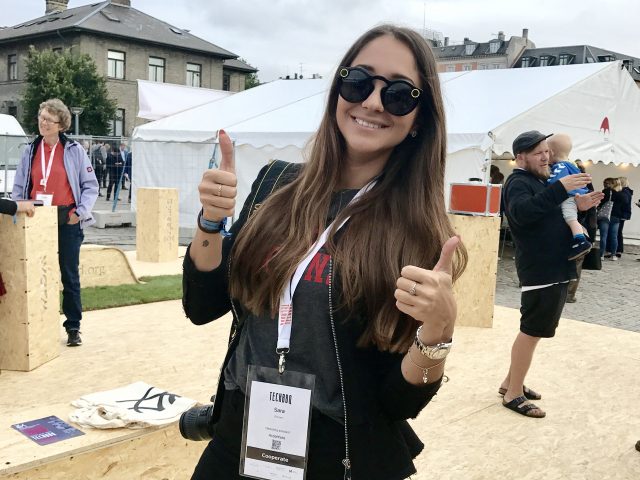
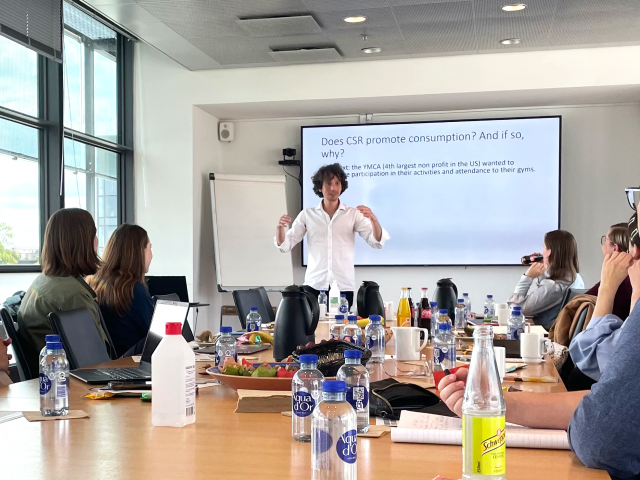
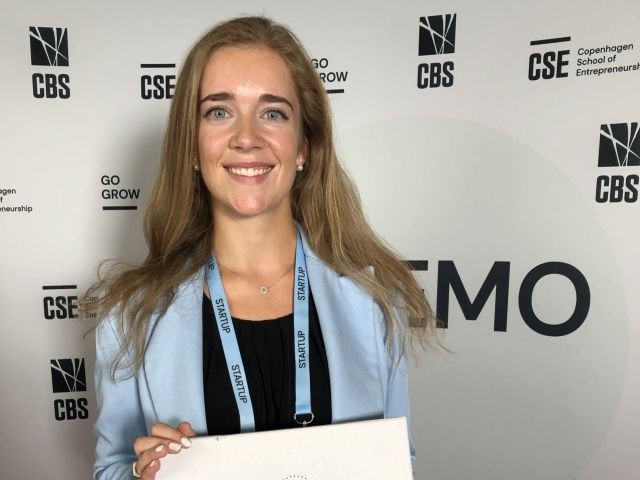


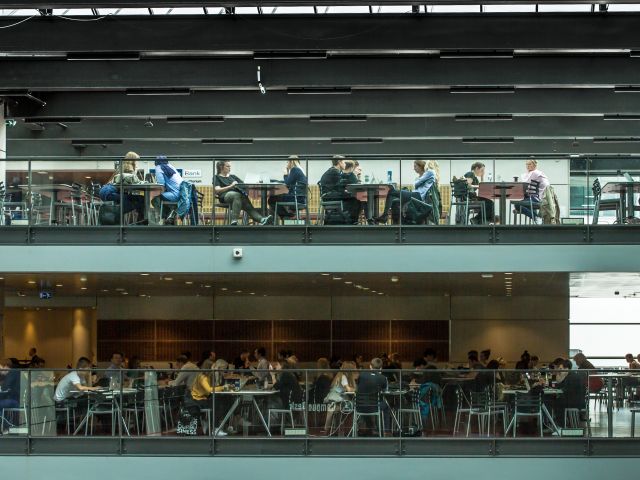
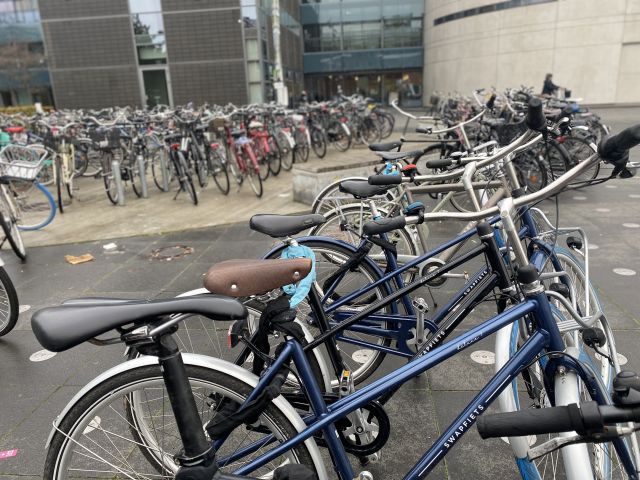




























































































































Comments